
Got through another handful of demos in the last couple of days, and a couple stood out as interesting projects.
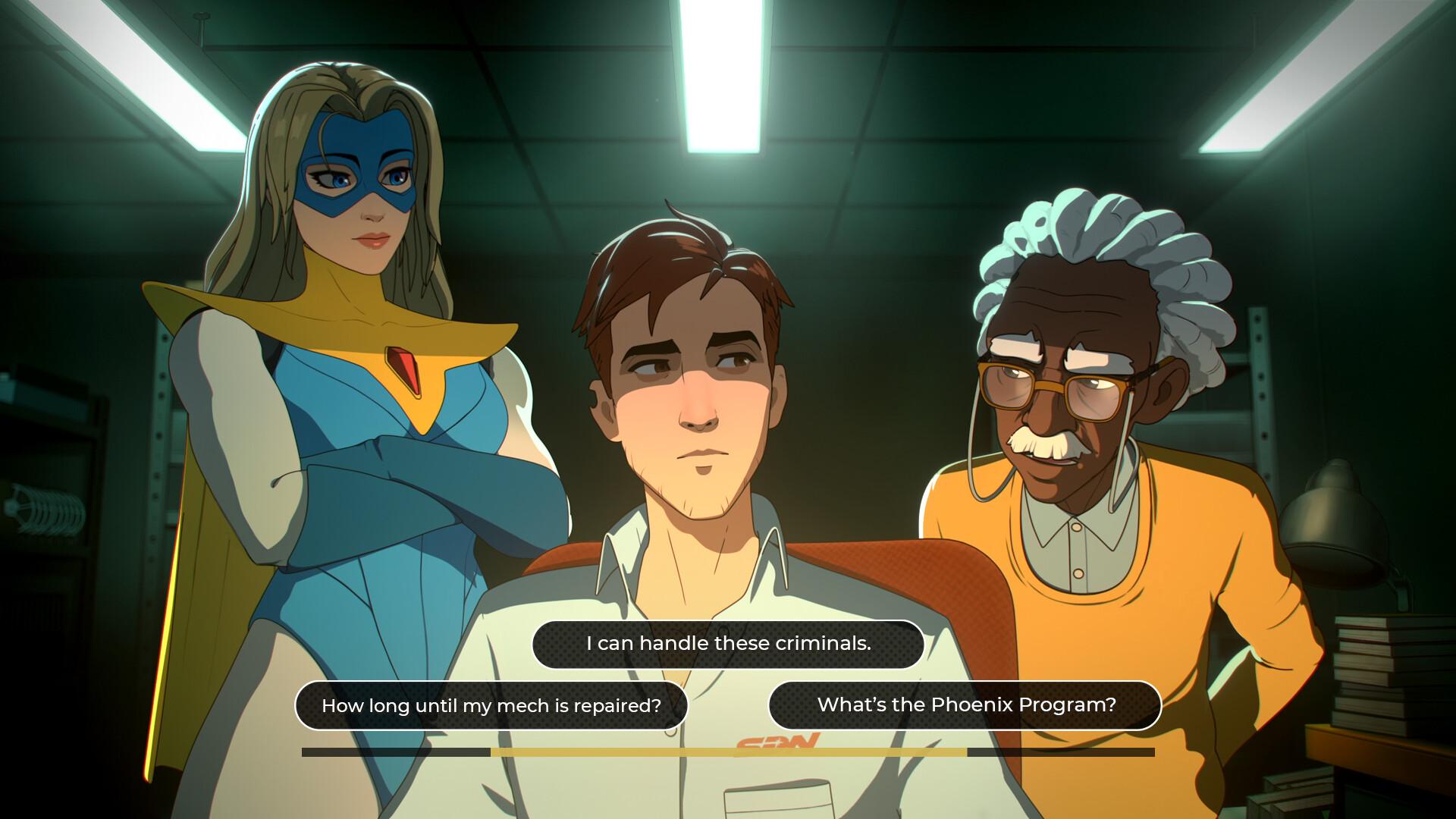
Dispatch is probably the highest profile demo I've played so far. It's a narrative choose-your-path Telltale-like, with what's essentially a worker-placement human resource-management game attached. It's clearly the sort of game that will add whatever mini-game fits a situation, and I'll admit to being a real sucker for that.
The premise is that the protagonist Robert is working as the resident dispatcher for a Suicide Squad-esque group of misfit superheroes, telling them where to go and what to do and occasionally helping remotely. The mechanics of it all really aren't the point though, this is all about characters and snappy writing and the demo delivers.
I was already leaning like 80% towards buying Dispatch, but the demo made that 100%. Really clean presentation, and the only reason I stopped playing was a softlock.
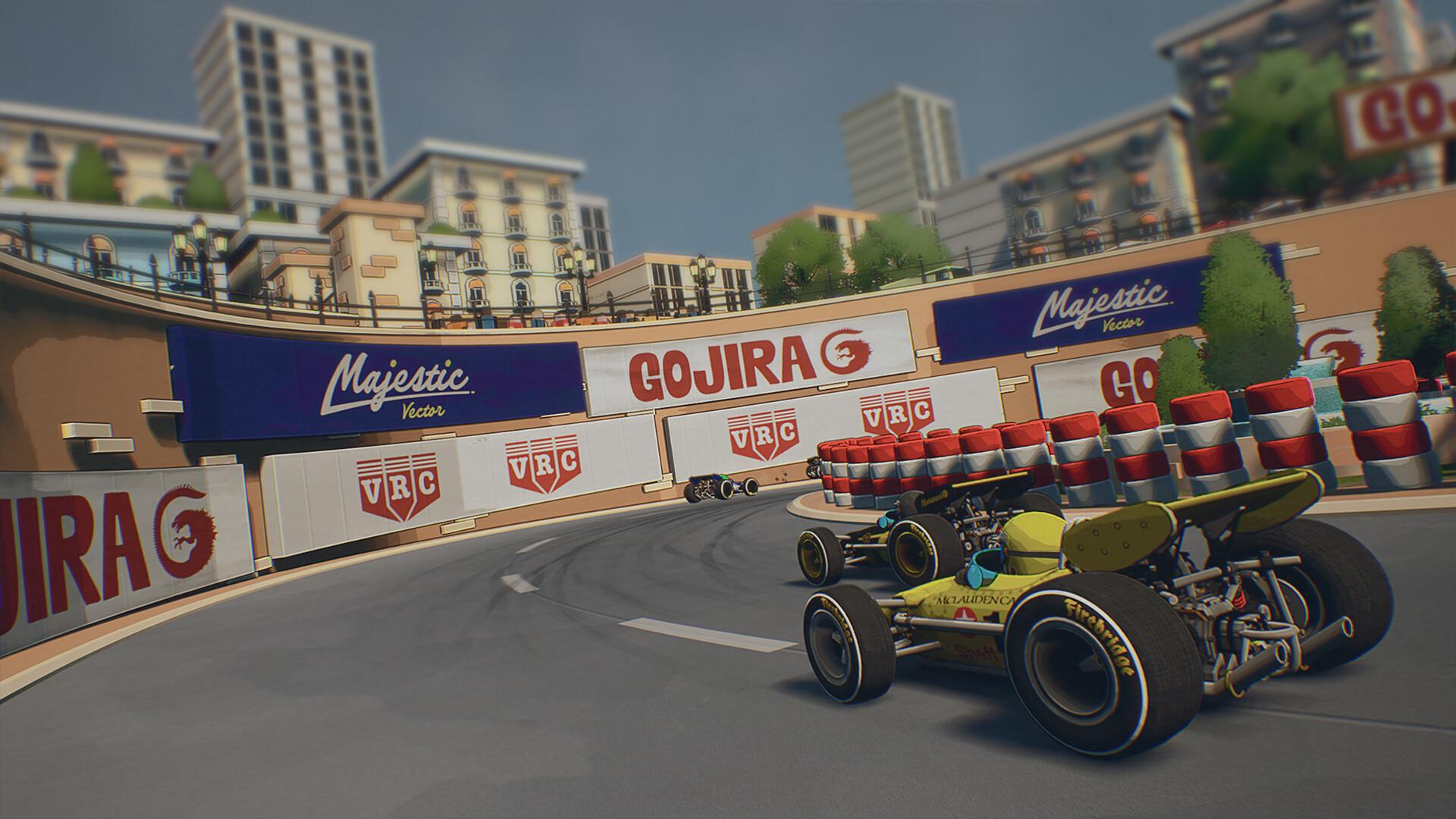
I got put onto this one by Egan's Not-E3 post - Formula Legends is a sort of arcade nearly-kart racer with a Formula 1 theme, but what sets it apart from other kart racers is a real commitment to the theme.
Cars understeer, oversteer, and lock-up. You can overjuice the throttle and spin out very easily, and if you try to turn while braking you will not in fact turn. You can slipstream your opponents, and in some cases deploy battery charge or active aero.
The really tasty hook is that you're not just playing with a modern Formula 1 premise. The demo has 3 eras - 1970s, 1990s, and 2020s. Only the last of these has active battery and aero deployment, and the 1970s cars in particular feel extremely temperamental to drive. Add to this multiple era-appropriate variations on each track and you have a very compelling non-sim-racer for fans of F1, and I'll be really keen to play some of this when it comes out.
(I finished 2 races, 14th and 12th out of 14. I had a great time.)
I actually played quite a few more demos, but this round was much less focused on obviously strong offerings so I'm OK with not liking the others as much. Still, across a total of 8 demos I've put 5 on the wishlist so that's a pretty good success rate. The plan is to do another pass of 3 or 4 demos this weekend before Next Fest ends. You should too!
✉️ Reply via email

Next Fest is back, and there's a lot of demos around. I've neglected this promotion in the past because I don't like playing games before they're finished if I plan to buy them, and I feel that's kind of how Next Fest gets treated in online circles - like a free early access snippet.
But I'm making a shift away from just following big releases, and while I'd love to just buy everything that catches my eye I'm not made of money. I'm using this Next Fest to play some demos specifically for games that I'm on the fence about - interesting ideas or smaller projects that I might like the look of but not want to buy immediately at launch otherwise (and thus immediately forget about in this market).
Here are some of the ones that I've tried so far (images are from the Steam pages unless obviously otherwise).
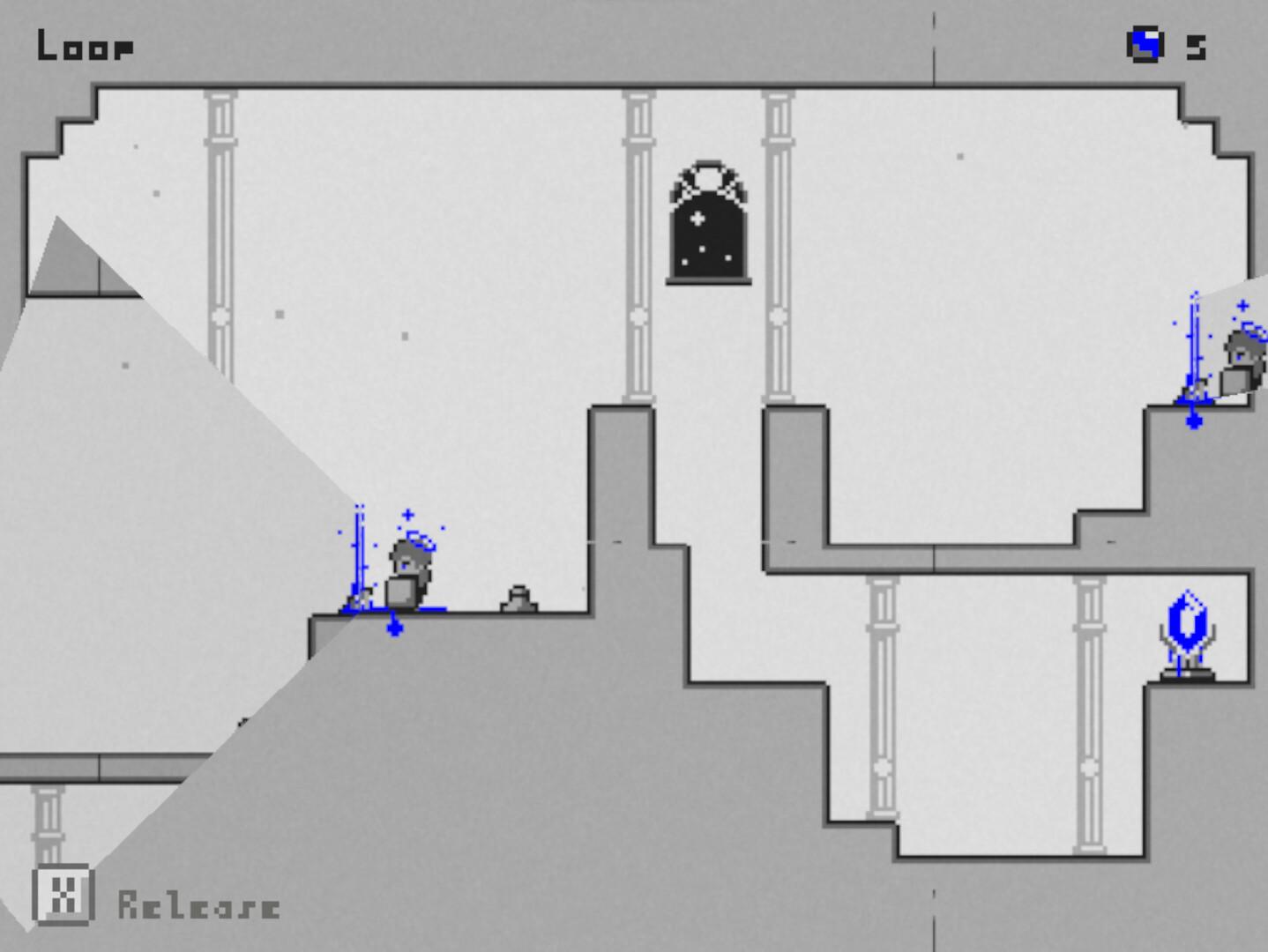
A really cool, tightly designed cubes and portals puzzle platformer game.
The greys-and-blue presentation really caught my eye with this so I went in very blind on the gameplay, and the initial reveal of the main mechanic was a little bit revelatory. The demo took me about 30 minutes to work through all the main puzzles (15 or so I think?), and I like how they incorporate puzzling into the overworld as well - you can't access some of the harder levels unless you figure out how to access it.
It's a game rife with interactions and "a-ha" moments, and the early levels are extremely good at presenting you with a room that makes you think "there must be some way to do this" even when it's not obvious how. Through tinkering with the limited tools available you can learn about some of the more complex interactions, or even simple ones - one of the longest stumpers I had just involved figuring out that my jump height isn't always the same, for entirely sensible reasons.
This is the kind of game that would usually languish on my wishlist because I'm rarely in the mood for puzzle-platformers these days, but it's jumped up pretty high in my view now. If they price it well this'll be a day one purchase.
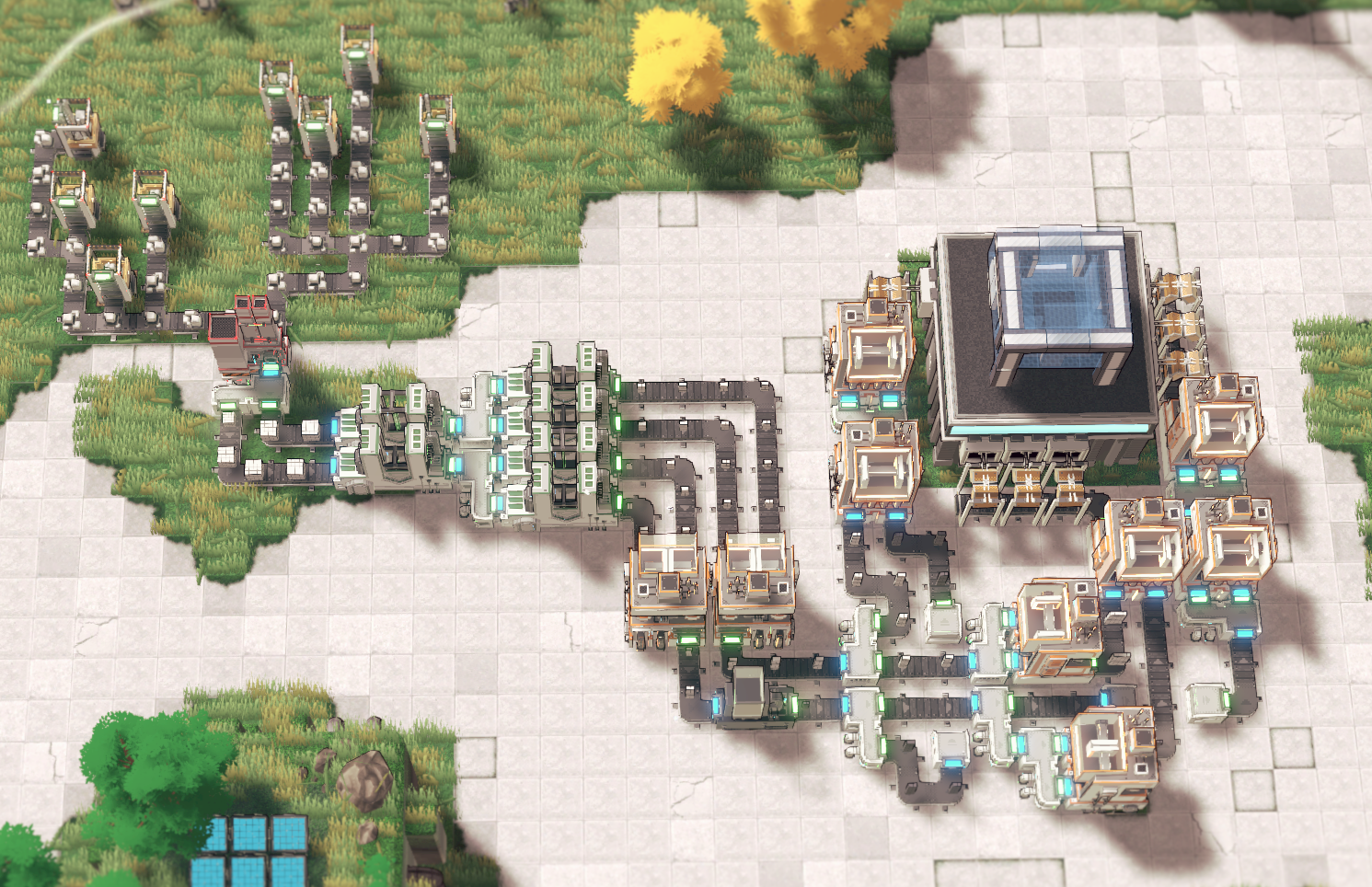
A logistics game (Factorio-like, if you will) where they've shaken up the core assumptions in a few interesting ways.
The two main ones are infinite resources (I've seen a few do this now) and the way resources become "stuff" - it all starts as big cubes of voxels, and you have to slice them up and recombine them to make the pieces you need. This is a game that's 100% focused on the production lines, and doesn't want you to worry about running out of stuff to make it, or even particularly about getting finished products to where they're needed - you belt your blocks and slices around, but the finished modules get handled by drones.
It does limit the space you can use - forcing you to build on the fairly small roofs of buildings, and I think this is the more interesting puzzle. Your facilities are large and processes can become spacially inefficient very quickly - I made the monstrosity pictured above mostly to see if I could, and once it was in place I knew I was buying Modulus at launch. I'm a little worried that it may end up in Early Access hell if they take that route, but the idea is interesting enough that I'll give it a go anyway.
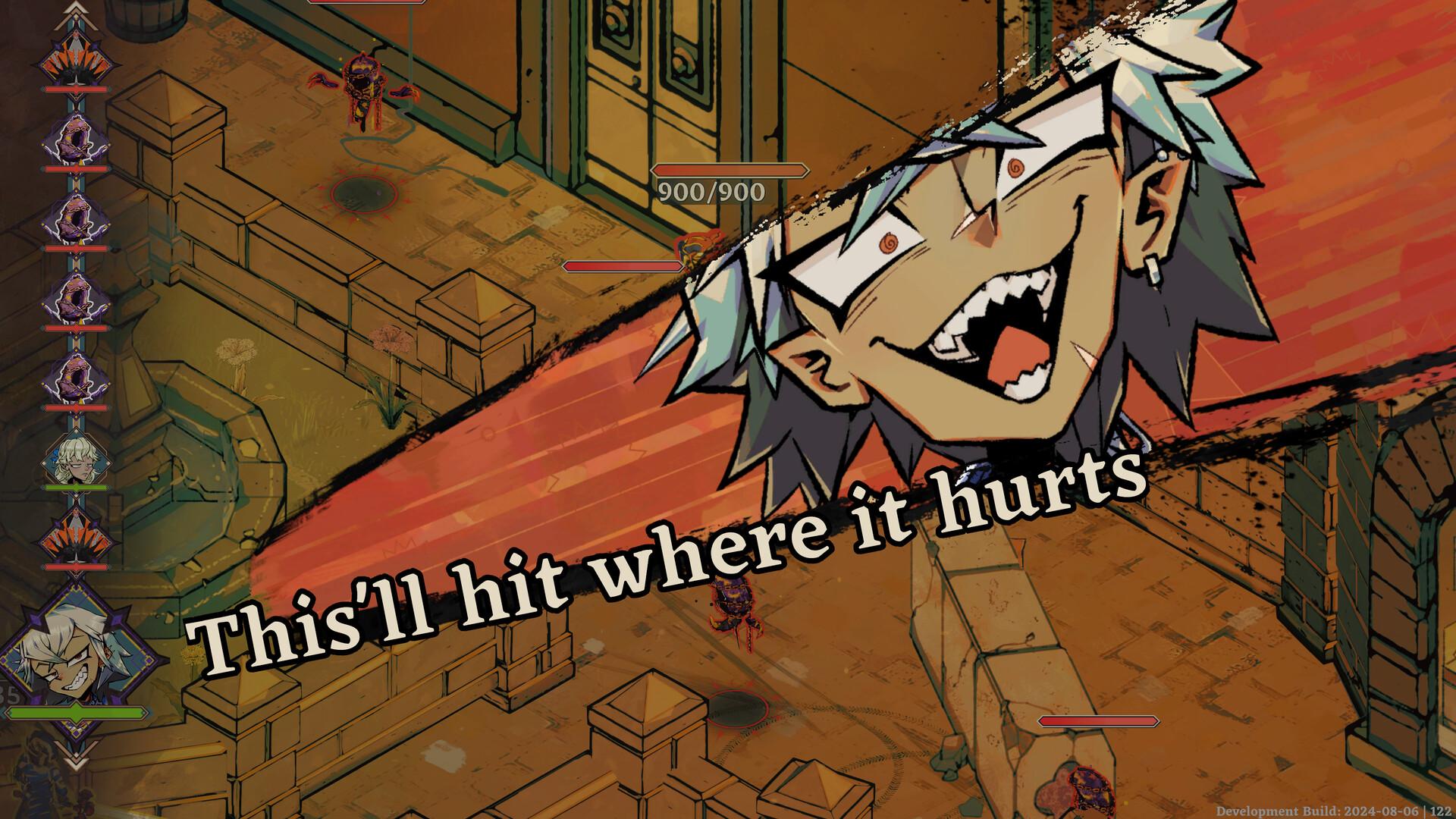
A tactical RPG using dice as your action pool, with a really distinct style.
This is a perfect example of a game I want to play during Next Fest: I would not buy this on a whim. TRPGs are very hit-and-miss for me, I think because they're pretty easy to make but hard to balance. I can't genuinely speak to the balance of Dice Gambit from the half hour of demo I played, but the rest of it is interesting enough that I don't really care.
The art has that sort of Cartoon Network energy, and it's clear that making the UI dynamic and distinctive was a priority here - we will forever be living in the shadow of Persona 5, and that's fine with me.
The extra hook for Dice Gambit is the recruitment system - the setting is a sort of alternate techno-renaissance Italy, and you gain fighters through marriages, with stronger fighters attracting stronger suitors. I'm not sure how much further the system goes, but this is a decent twist that pulls in that Crusader Kings "good lord look at that mess of a family tree" goodness.
I've played a couple other demos that haven't hit the spot for me, but I'm not here to talk down about projects based on a snippet of gameplay. Demos are inherently incomplete, and with how they're produces in the modern market (i.e. long before the game is finished) the gameplay is incomplete as well.
I still have a couple of demos downloaded and ready to go, and I'll do another scan this weekend if I have time, but this is the result of the first batch and I'm liking with what I'm seeing. It's cool how this demo renaissance has impacted the industry, something I think I want to write about a little more at a later date - demos are a really weird and tricky concept, and I think people tend to apply overly broad heuristics to figuring out their value.
✉️ Reply via email
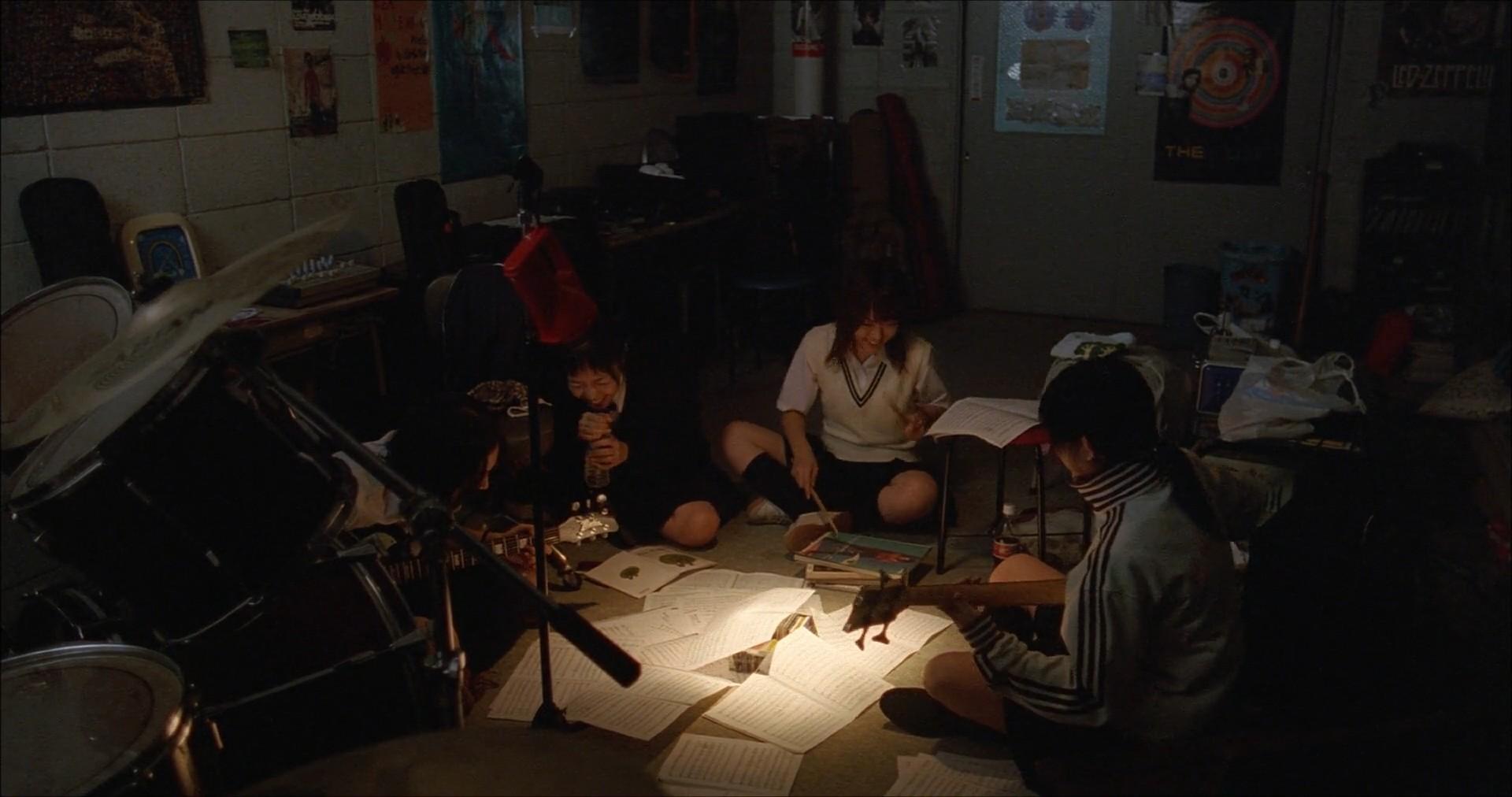
Linda Linda Linda is a 2005 film about a Japanese high school band in the 3 days running up to a performance at the end of their senior year, at the conclusion of the multi-day Holly Festival. Their guitarist Moe has injured her hand and their singer Rinko has quit over a falling out with the keyboardist Kei, but rather than cancel the show they make a pivot - Kei will play guitar, and they ask the first person who walks by to sing for them - Son, the Korean exchange student.
Son's Japanese is bad enough that she didn't know what she was agreeing to, and Kei can't play guitar. They decide that rather than performing an original track as planned they'll cover the Blue Hearts, a punk band everyone knows.
Linda Linda Linda is about the things the film doesn't say it's about, because people don't usually tell us when we're having the best days of our lives and we resent it when they do. Throughout the film, people in the periphery of the band's scramble know how important this show will be for them, how the moments they're sharing can't be taken for granted, and any attempt to explicitly address this idea is shut down with the ruthlessness of a teenage girl disinterested in taking things so seriously.
I went into Linda Linda Linda expecting to enjoy it, I was primed by the googling I did after hearing about it, but I wasn't ready for it to sit in the back of my mind the way it has. It's an exceptionally simple story, with low stakes and a sparseness to its pacing - the editing has a film-student's love of lingering shots and extended pauses. The awkwardness of teenage socialisation against the raw emotional expression of punk rock hits extremely hard.
Throughout we get snippets of the Film Club documenting the festival, the director's confident incompetence mirroring those careful, measured, awkward silences.
These are the moments that make us - clumsy as they are, they lay the foundations of the people we will be.
Linda Linda Linda is available, with subtitles, on archive.org. The Blue Hearts are not on Spotify.
✉️ Reply via email
I could honestly talk all day about Clair Obscur, within 10 hours I had full faith that I was going to have a good time and the 50-hour run really didn't disappoint.
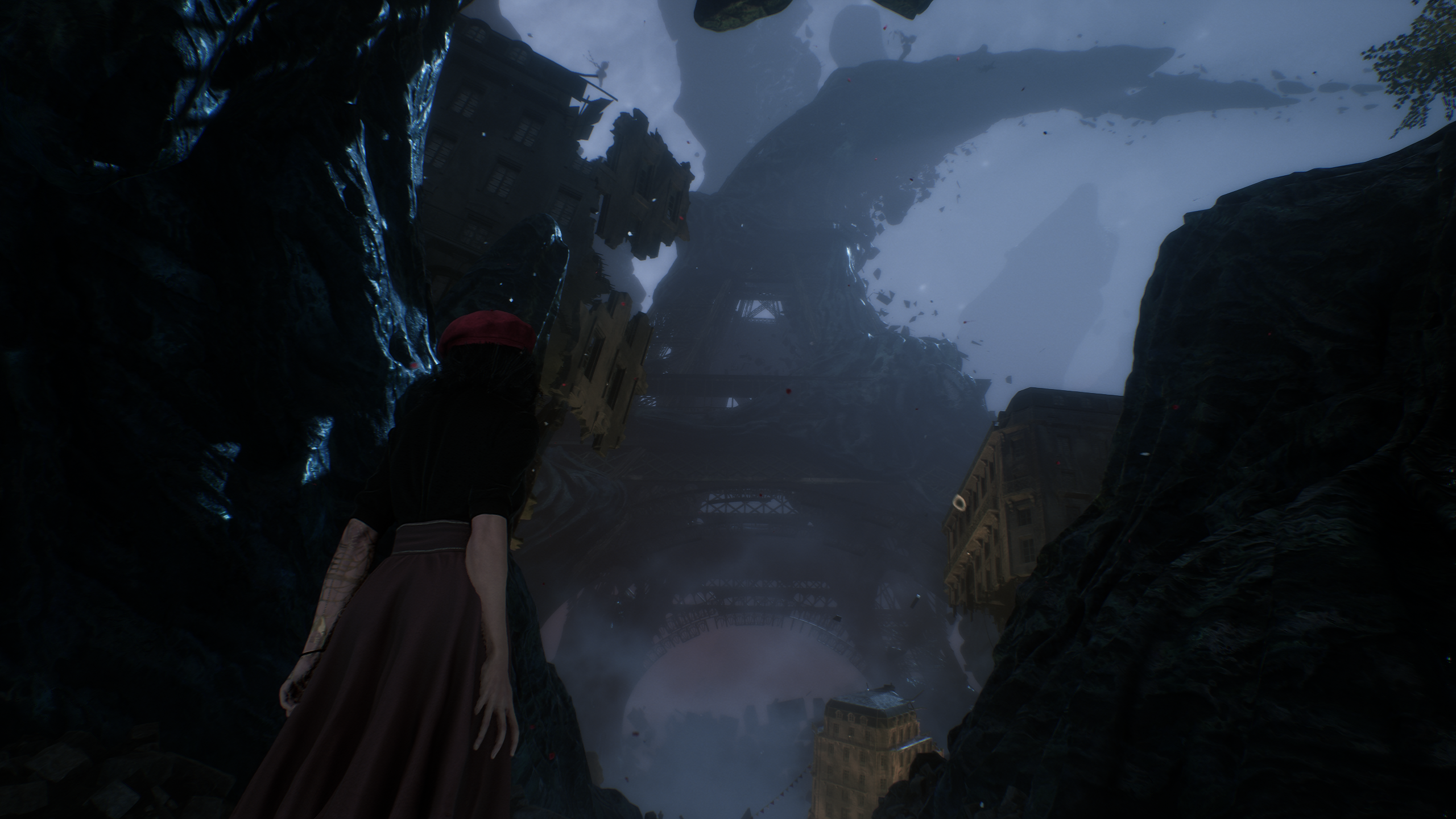
It's sincere while remaining silly, heartfelt without dipping into irony.
It's original and yet its influences are worn on its sleeve.
It's clever and convoluted but allows the player to piece things together before spelling it all out.
So why not a full review?
Honestly, I don't know that I have much to say beyond what literally everyone has said. Clair Obscur fucking rules.
It's a JRPG for people who don't like JRPGs, and it's kind of a souls-like for people who don't like souls-likes?
It's extremely French in a way that's frankly weird, not because France is weird but because it's weird games aren't Frencher given how many big games are made there.
I have a handful of nitpicks - it's a little unclear when is a "good time" to go fight a boss (just go fight them), and the game is at its best when you're a little underlevelled so this can make the main bosses a little underwhelming. The only saving is via autosave, which can sometimes mean retrying a boss means a pointless sprint from A to B. It's quite unclear how much damage different attacks do, even relative to one another, so you spend a lot of time trial-and-erroring and trying to eliminate variables - this isn't so bad until you come up against a difficult boss and start to care about the margins.
But it's just nitpicks. I've done basically everything a first playthrough has to offer, and had a lovely time in the process.
I'm not a big New Game+ guy but I think I'll come back to this in a few months and play on a higher difficulty to make it a proper skillcheck rhythm game - I've pretty much hit the limit of "just scaling the numbers up" and the last megaboss fight really confirmed that for me, there are a bunch of enemy patterns that I basically just brute-forced my way through.
Anyway yeah 10/10 game. I want so much more of this stuff - passion project genre shit with clear compromises but a clearer vision.
✉️ Reply via email
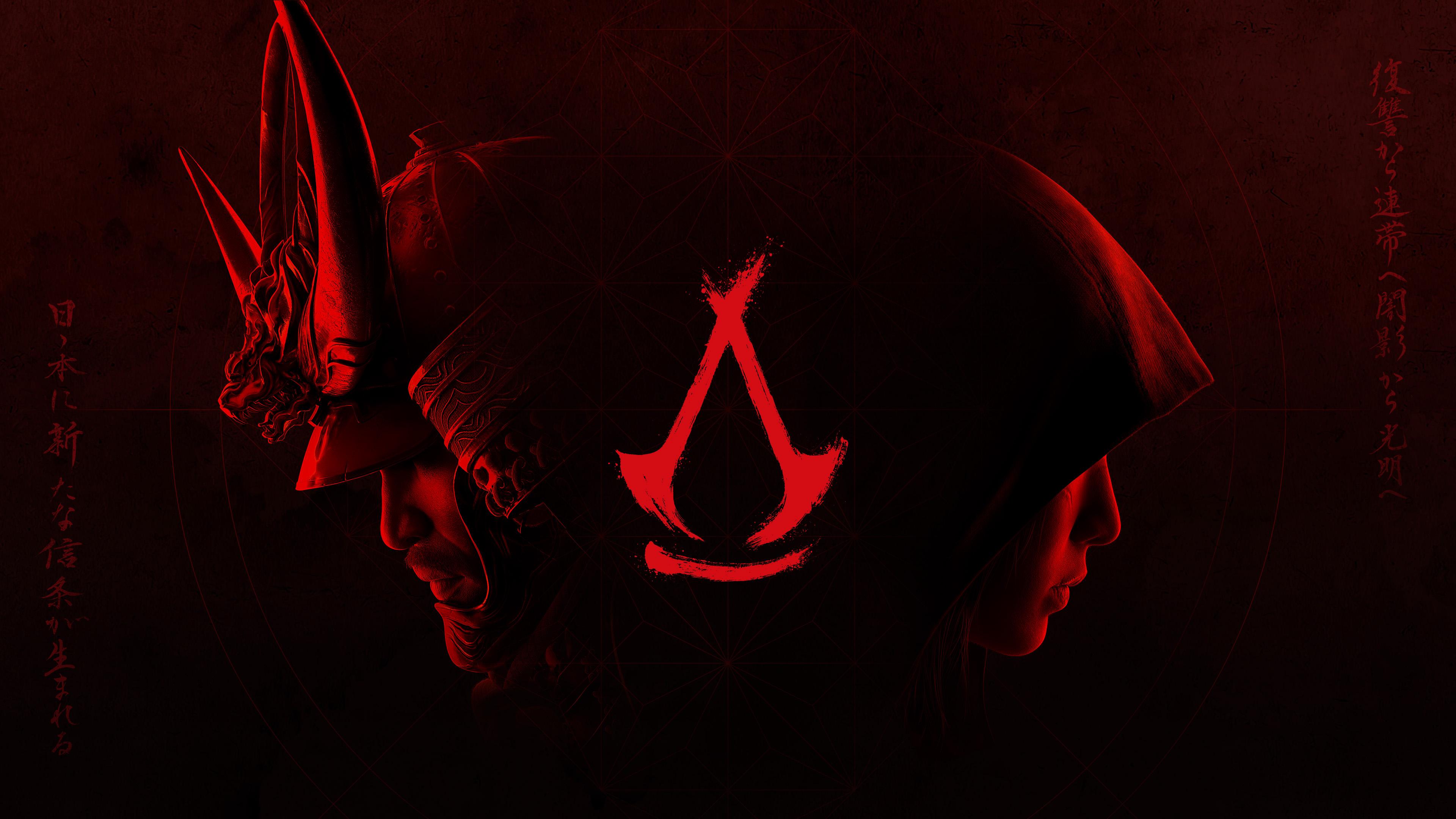
I mentioned in my recent mini-posts post that I'd been playing AC: Shadows, and that I really didn't like it from the first few hours. Well, I've played another 6 or so hours and I'm done with it, it's just a shocking display of unchecked budgets and a complete lack of direction.
More than anything though, it's just incredibly unpleasant to interact with. Every menu has these long flourishes, you're expected to compare trousers constantly but the default pause menu is the map, so you have to tab to the inventory every time.
Gear is just relentlessly thrown in your face, but getting it out of your inventory is genuinely soul-crushing, with a 2s long "ITEM STORED/DISMANTLED/YEETED" animation every single time to make sure you know the game did what you asked using the buttons they provided.
The first "legendary" outfit I got looked really cool but had a """bonus""" ability that made me through a kunai at the nearest enemy anytime I did a stealth kill - which made stealth really fucking hard? For my shinobi????
I had to kill a guy who had 4 health segments, but my assassinations only do 3 segments of damage - then I realised I had a different hat that gives me +1 segments on all assassinations... so I stood in front of him, switched hats, then stabbed him and his friend in the neck.
| Clip misses the moment I spot that I can only take out 3/4 of his health.
I later got into a fight and sure, I know the shinobi isn't meant to be doing pitched battles, but I still expect it to be fun. Not here though.
I'm struggling with the targeting - there's no visual reference for who you're aiming best I can tell? So I'm getting my ass beat. I recognise it's getting away from me, so I try to change over to my smoke bombs for a classic escape.
I dodge and hit L1+DDown to change to smokes, L2 to aim and move the right stick... no movement. I'm still locked on, even when I try to manual aim. I click off, try again, and throw a kunai. I didn't change to smokes? I parry and dodge again, holding L1 and realise I can't change item until I have completely stopped moving. I mash DDown to change, try to throw one aaaaand I'm dead. It's all just so hideously unresponsive.
Oh, and then the game crashed.
But it's not just combat. Walking around - using Hold R3 to activate "Eagle Vision" (not lampshaded with an actual bird in this game, btw, gave up on that one already) feels terrible, the camera always feels like it's looking to the side of what I want, the objective screen is an interesting approach but tracked objectives don't auto-update to the next stage of an objective chain, so I've interacted with that screen more than I have with Yasuke 12 hours in!
The inventory stuff above sucks, but also the whole weapon idea is insane - you have 3 weapons and can only equip 2, but you can swap them mid-combat??? And they have special utility that you need them equipped to use, like special assassination methods!
It's drudgery for the sake of calling it a "mechanic". Oh, we have "loadouts" now, make sure to "share" your "build" on "social media". Great "content" to go with the "weekly objectives". Spend 2 "mastery points" for 2% more damage at night. Do it 2 more times. Now do it for 2% extra armour damage 3 times!
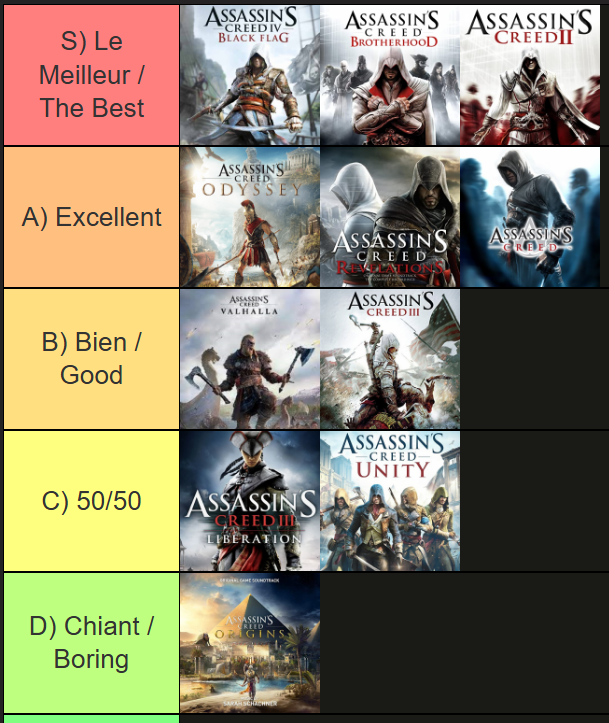 | Obligatory tierlist
| Obligatory tierlist
I had a quick check and this is the 12th AC game I've played properly (i.e. not just a quick check on an emulator for the DS games), and it's only the 2nd I haven't enjoyed for what it is and finished. The previous was Origins, but I didn't necessarily dislike that game - it was just incredibly dull. It was directionless and empty and there were a bunch of ideas that were clearly there to make the game slower and less refined, to make you play more and conceivably pay more, when Ubisoft were first ramping up that approach to their games.
In between I really enjoyed Odyssey and Valhalla - still pleeeeenty of filler and drudge, but they were games with some fucking ideas - Odyssey was just delightful to explore and navigate even if the quest design was bad, and Valhalla did a lot to streamline and improve the questing! While the exploration became dull again... there's not a lot you can visually do with middle ages England.
AC:Shadows feels like a return to that Origins vapidity. The world is incredibly empty for how beautiful it is, traversal feels terrible considering this is a parkour series at its core, and quests are just... kinda thinly spread around it. But worse than Origins, it just plays like shit! And this is on the 4th iteration of this "genre" of AC game! How do you get worse at this over time???
Shadows feels like a game built from the ground up by people who can only communicate by analogy to games that have made $1B+ dollars. Like with Veilguard all the artists are absolutely killing it here, producing some excellent music and beautiful visuals for a game that barely functions.
I don't understand how anybody with a passion for game design could spend more than the 12 hours I did with it.
It confounds me to see these such resources piled onto this expansive, vapid "content".
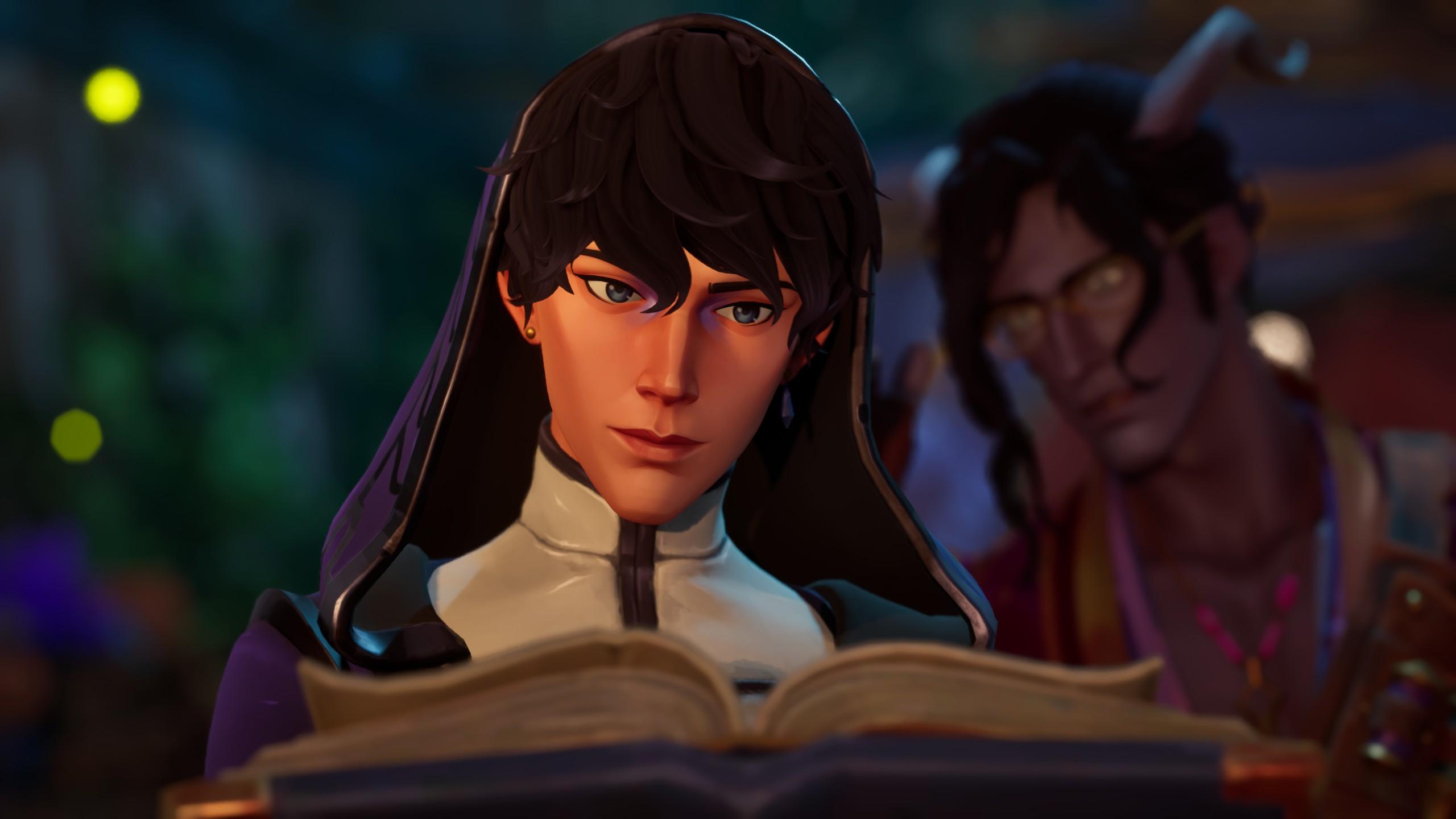
I first heard about Eternal Strands just a few weeks before launch when they announced the demo, the first hour or so of the game, would carry progress into the full release - we can call that an early win for consumer-friendly business already. Looking into it a bit, I saw it was the first game from Mike Laidlaw's (formerly Bioware) new studio and I'll admit that this biased me towards it a bit.
Since Bioware started its weird splintering and collapse about 10 years go, we've seen the quality and general "vision" of their games deteriorate - Andromeda was extremely messy and half-baked creatively, Anthem was a bland disaster, and with Veilguard it became clear that this wasn't just a rough patch, but a complete implosion of quality from a writing and indescribable vibes perspective. Seeing their old guard writing leadership leave created this weird opportunity to watch them all do their own thing and get an insight into who's departure was "to blame" for this decline - who can still make a game without EA money? *
So yeah I see Laidlaw's making a game, lead designer and creative director on the first couple of Dragon Age games, so this is a chance to see if it was just "good writers" or an environment that lets good writers thrive - this is a really interesting test-case. I then see that it's a relatively small AA-scale game and that it'll cost £33 at launch - this is insane to me, I've gotta give this a look.
Already committed intellectually I played the demo anyway to figure out how soon I wanted to play it - and it was like getting hit in the face with my dream game.
Eternal Strands is set in the Mayda Basin, a fantasy continent made up of several conflicting and cooperating territories containing a handful of different humanoid species. Magic is performed by people called Weavers, who are in the current day ostracised due to a disaster 50 years ago in which all magic basically exploded, and the political home of Weavers - a state called The Enclave - locked itself behind a magical Veil. Brynn is the newest member of a travelling band of weavers investigating a possible entry into the Enclave, which would be the first since the veil went up.
To do the very quick summary of what it is as a game, it's a semi-open-world action adventure game with combat mechanics focusing on a physics-based magic system, climbable bosses and environments, and a gathering/extraction/crafting mechanic. It's also heavily built around dialogue in an RPG style, but without the consequences for your choices you'd expect from a company like Bioware - your dialogue choices characterise the player character, not the outcomes.
In practice a lot of this ends up a bit janky, especially in the early game while I was still finding my feet with the physics system, and throughout the early game I was reminded of the PS2 era where off-budget games exploring unusual gameplay mechanics were much more the norm. It brought to mind games like 2004's Second Sight by Free Radical, a game which existed almost exclusively in bargain-buckets at my local Gamestation but which holds a very special place in my heart. **
I played Strands pretty leisurely over a week and a half, finishing it in a sprint of about 10 hours last weekend because it had me totally hooked. All the mechanics really clicked together, the story had my attention, and I was really enjoying the characters and new areas I'd unlocked. Despite the tranche of words above, I'm not going to go into great detail here on the game's specifics - I'm planning to write a bit more about those things in dedicated posts.
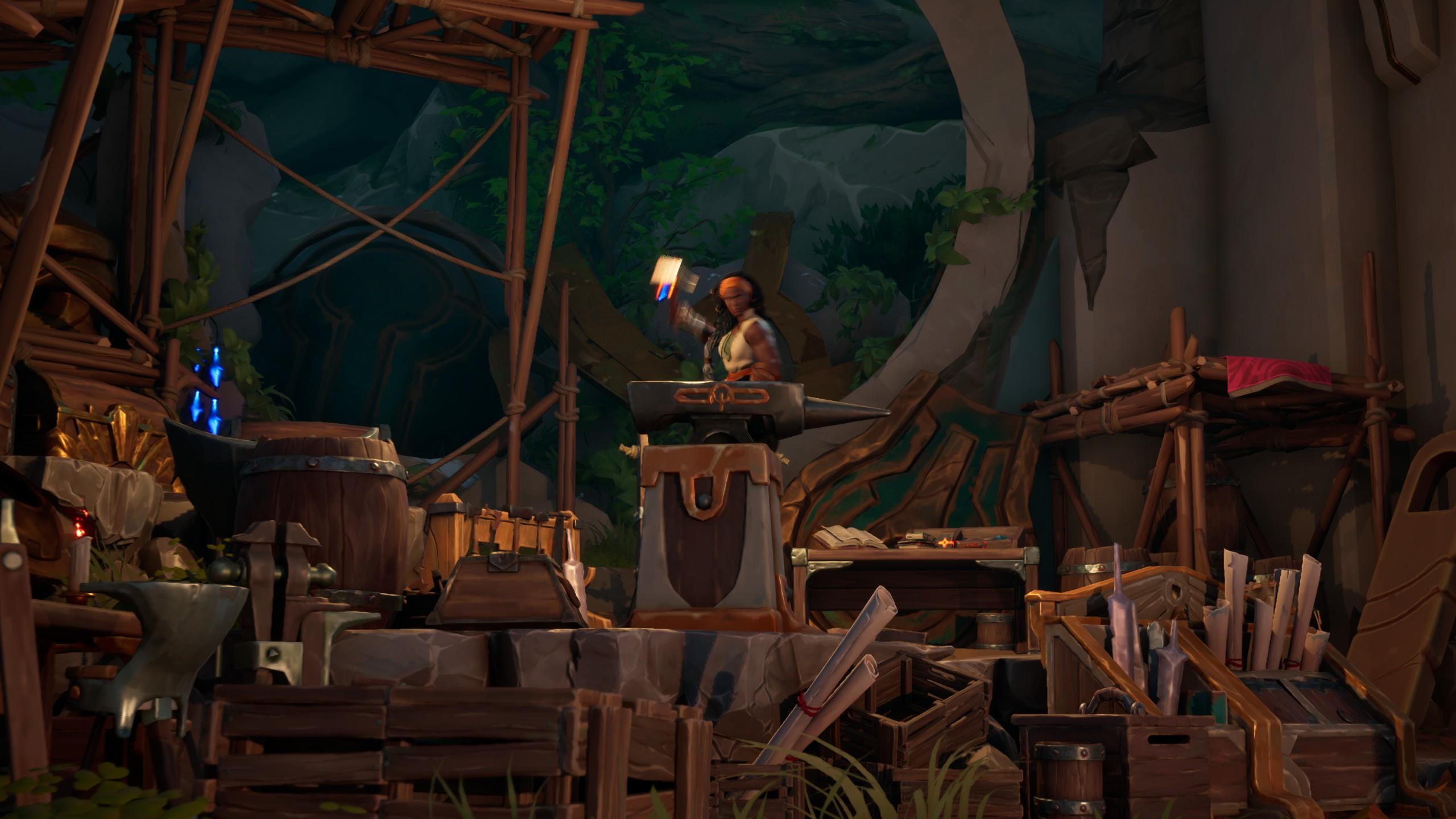
Suffice to say that I have almost exclusively praise for Eternal Strands. Where it fails to excel it succeeds in sufficiency - there are definite lows to go with the highs, but they feel like choices and compromises for the sake of the collective vision.
The visuals are really lovely - extremely Fortnitey in that "that's what Unreal Engine's made for" kind of way, but characterful with it and well optimised to the scale of game being presented - the edges of the map are consciously artificial ("a bubble of safety" for the protagonist's explorations), but they do a great job of keeping the out of bounds area lush with detail and landmarks. Dialogue occurs between 2D avatars like a visual novel, and this is a clearly economical choice - but also a very characterful one I think? It really worked for me, regardless.
It's hard to escape the knowledge of Bioware's DNA in this team though - "the veil", magical living rock, poison in the earth, and extremely geth-coded constructs (as well as some late game stuff I won't go into) all paint a picture of a team working through ideas still lingering in their minds. It's not in itself a problem, but in the introduction it does feel as thought they could have worked harder filing the serial numbers off this particular boilerplate.
The gameplay is really what makes Eternal Strands shine in my view. You start off finding great satisfaction throwing little fire flowers at enemies to kill them instantly or tentatively freezing a path through a raging fire, in the midgame temperature swings are entirely in your control and you can confidently sling enemies out of your way to get from A to B, and by the endgame you will be, if you so desire, hurtling yourself around the map at 100mph and paying no heed to your surroundings. The pacing plays so nicely with the mechanics, making backtracking stay interesting as the areas develop along with your toolkit for dealing with them.
The magic system really does deliver on the promise my nostalgia-ridden heart made to me - there are only 9 "spells" to choose from but by the time I'd unlocked 6 I was unsure what more ground they could cover - of the last three, two were both hilarious and extremely useful to me in clearing the lategame quests. The bosses remain fun into the endgame as you figure out new and better ways to undermine them, or in some cases give up on being clever and just tear them to pieces. In Eternal Strands, the numbers don't go up by a massive amount, but the ability to affect the world is exponential.
The resource/crafting stuff is possibly the biggest risk the game takes - you have a limited inventory, and lose resources on death, so the potential for frustration is high. It took me longer than I'd like to realise that the intended response to this is to do lots of small focused excursions, then deaths are less impactful and, narratively, Brynn gets plenty of rest. But it interacts with another much lighter system - there are 3 times of day (morning, afternoon, night) and each excursion uses up one of them. The game keeps track of the days and mixes things up between day and night, but really none of it matters. But there was a number going up, and I could make it go up slower - learning to not care and let it rise was a real lightbulb moment for me coming to love Eternal Strands.
The weaver band Brynn is a part of is a particularly charming part of the experience for me. It was just really refreshing to get so much done with my in-game friends in a (by modern RPG standards) very short game at <30 hours. They interact with each other in ways that feel real and they respond to dialogue choices in ways that are, while entirely superficial, incredibly satisfying as the player. At one point I made a rousing speech, and rather than just say "nice speech" a character kept repeating a particular line Brynn said, both highlighting the choice we made while also telling us what resonated with them specifically. I don't know, it feels like such a trivial bit of writing but it embedded me in the story - stuff like that is what's going to stick with me weeks, months, years later when I think about this game, more than any approval meter I've ever filled in the past.
The overall story is really solid - well paced, nice rising and falling tension, some fun non-weaverband characters with their own priorities, and a really great "mannnn, fuck this guy" antagonist. I don't want to talk about it too much here, but a good amount of time is spent establishing motivations, good or ill, and letting the player talk to various actors about what matters to them. It felt complete.
And that's the real feeling I had walking away from Eternal Strands - it's a complete experience. They explore their mechanics fully, tell a well rounded story, and don't leave much on the table. I'm sure they could come up with a sequel if they wanted, but they didn't purposely leave massive narrative gaps to be filled in case it sold well enough to justify more games. The setting is pretty fertile though, with lots of room to work with there - the story takes place in a very small area of what is a very rich cultural and political landscape, something I'd be really keen to see them explore more with an expanded - or focused - version of the same mechanics.
I said earlier Eternal Strands put me in mind of Second Sight, but it also makes me think of Mass Effect 2 - a game that was so good at telling a story that it got a whole generation of turn-based narrative RPG fans into a third-person action shooter franchise. I feel like pitching Eternal Strands on the physicsy combat or breezy traversal would be a problem for that audience, but the storytelling really gets to flourish here in a way that I'd hope draws that same audience.
We need more games like Eternal Strands. It takes a little while to get going, but never bores - I stopped sessions because I was done for the day, and then was looking forward to starting it up again tomorrow. I enjoyed wandering around camp talking to my party as much as I enjoyed climbing colossi and yeeting myself and others across the sky.
I wholeheartedly recommend Eternal Strands.
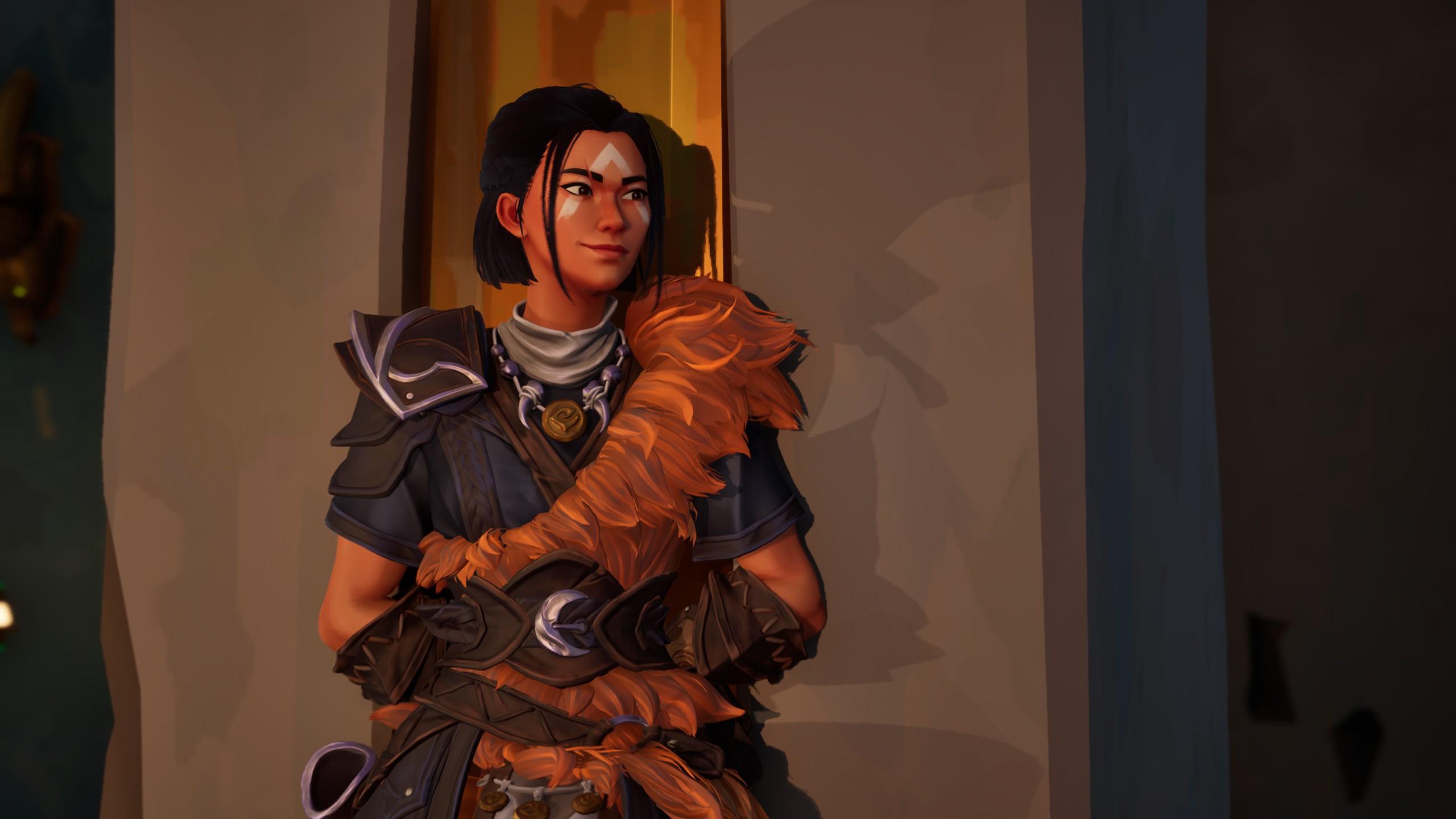
* Please understand I'm being facetious about blame here - any such problems are Bioware/EA's fault, and leaving that company seems to have been a universally good idea. ↩︎
** And the hearts of many others apparently - there's a steam port with 80% positive reviews, and the 20% negative one are almost exclusively "what a shitty port of a great game." ↩︎
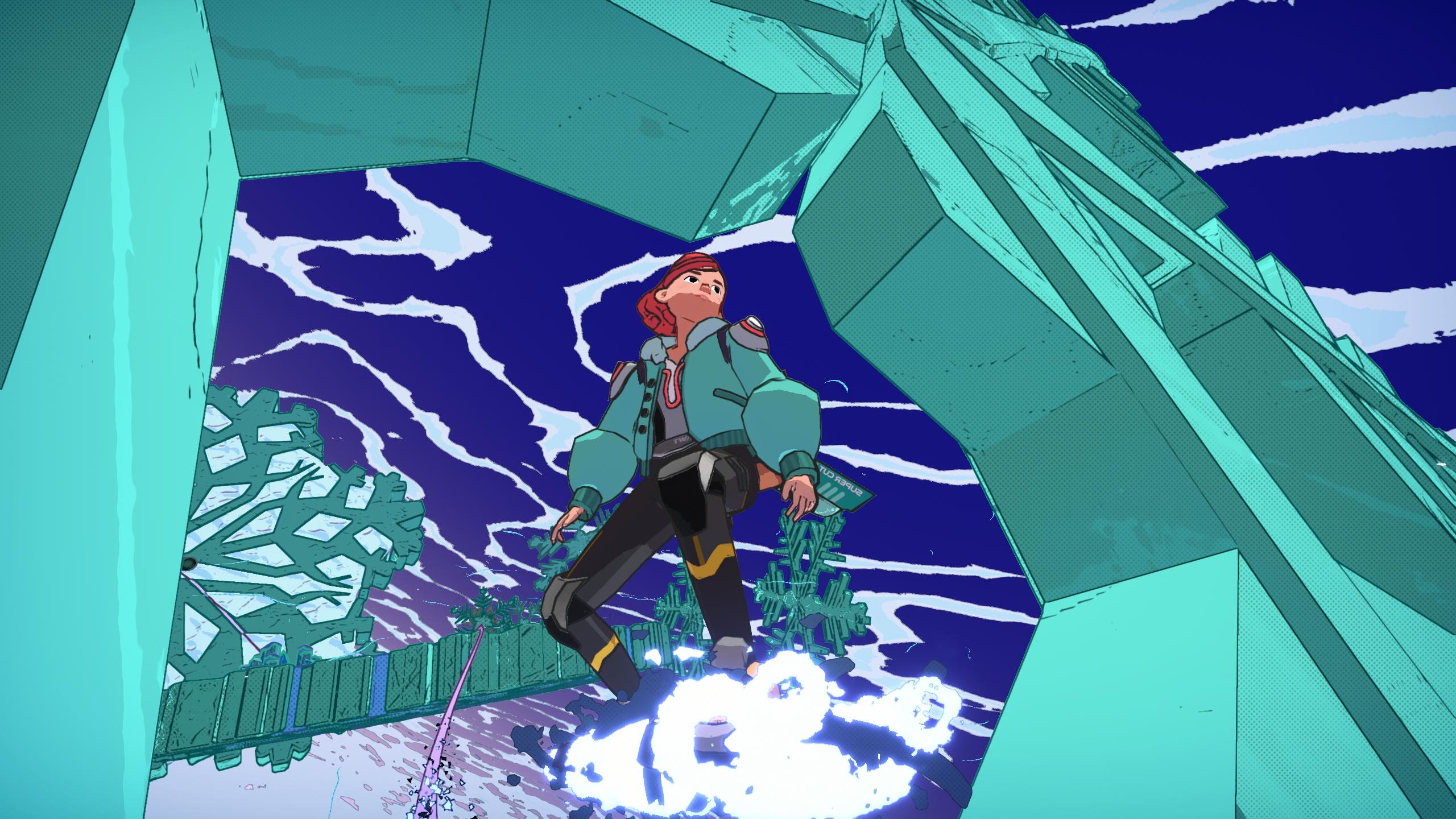
This is a bit of a strange turn in the opening paragraph of a review, but I want to use Dungeons of Hinterberg as a jumping off point for how we (collectively) talk about, recommend, encourage, proselytise indie games.
Recommending Indie Games
In the world of videogame commentary, the material intended to get readers to buy and play any given game tends to fall into one of two categories -
- Here is a list of genres whose conventions the game hits, and how competently it hits them.
- This game will take you on a specific type journey you can't get from a AAA or live-service game.
The former is kind of working on the converted - the writer takes the reader to be knowledgable and engaged with the Good Work of "play more indie games" - and as a result can feel quite cold and reductive to me?
Alternatively, the latter often feels like it oversells the experience. If expectations are set wrong, a game which already struggles for exposure can end up appealing to an audience that won't promote it.
In that vein, I'm thinking about how to talk about Dungeons of Hinterberg and neither feels fair or sufficient.
The Review
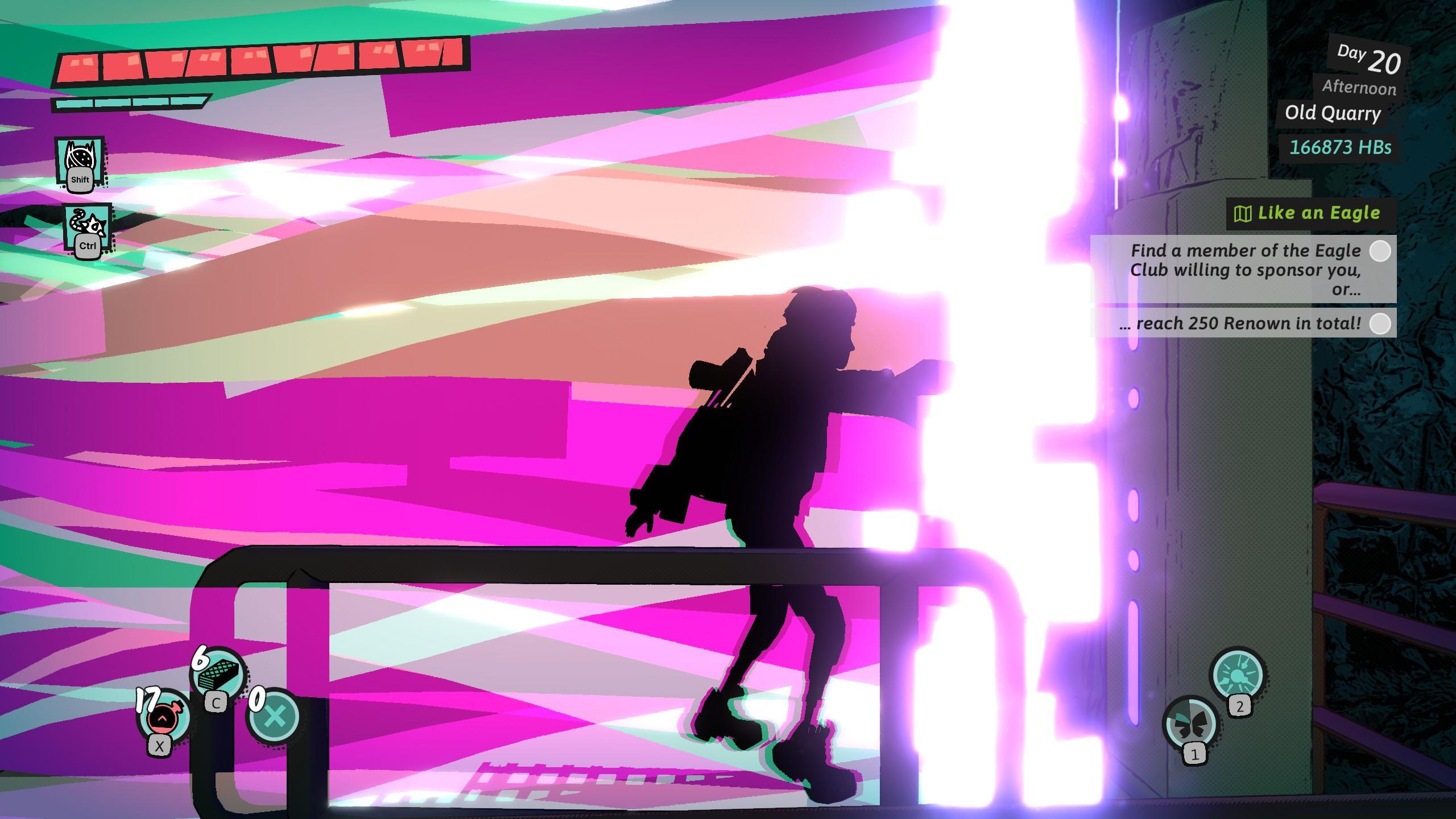
I could say it's a Zelda-lite narrative action-adventure game, that uses a Persona-like passage-of-time system to pace out the experience as you explore the village of Hinterberg's 25 magical dungeons and meet other prospective adventurers in an alternative present day setting.
I might say it's a nostalgic exploration of millenial burnout, opening ourselves up to new experiences and getting out of a funk, expressed through a blend of systems with fun characters, snappy dialogue, carefully crafted puzzles and combat to ensure a satisfying but approachable challenge. Well-balanced and cozy in its sense of progression, it doesn't hold the player to a need for perfection.
Both of these are accurate, but neither really gets at why I'd recommend DoH outside the usual circle of "people I know who like indie games". Both together also don't really get to the point of why I really enjoyed it myself.
The groundwork first - in Dungeons of Hinterberg, you're exploring a set of magical dungeons spread across 4 distinct zones each with its own set of magical abilities - analogous to the dungeon items one might find in a Legend of Zelda game. These magical abilities inform the kinds of puzzles found in an area's dungeons, and also how the player can approach combat. Some abilities might be largely useless in a fight but makes for some interesting puzzles or non-combat gameplay, where others might make combat significanly easier to the point where you miss them in other areas.
On top of this, the game is split into days, where each day has a Morning, Afternoon, Evening, and Night. Mornings for dialogue mostly, Afternoons for Exploration of the 4 areas, Evening for Socialisation, and Night for some additional minor actions to affect stats. Afternoon and Evening are the meat of the game, and the game clearly borrows a lot from the Persona games - there are a number of other people in Hinterberg who you can form friendships with, and as you progress those friendships you learn about their stories and gain bonus abilities or items. It's a very tidy system, and I'm very keen to see more devs use and experiment with it.
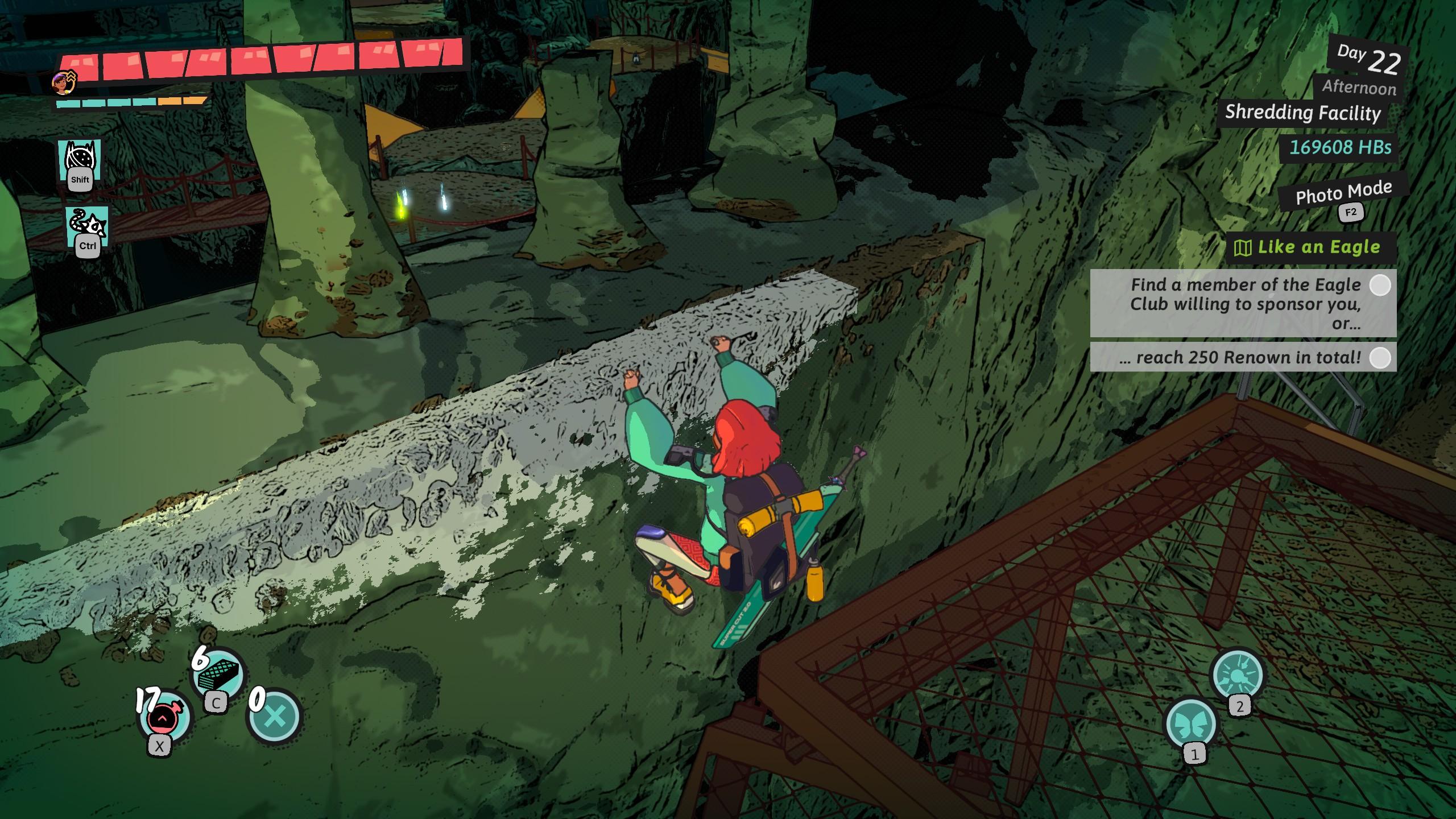
I found DoH to be an entirely competent experience for the first 5 hours or so, with some strikingly attractive visuals and a really dramatic and lovely sense of place. I don't think I've ever played a game set in the Austrian Alps before, and I've certainly never played a game that looked quite like DoH does either - I assume that's related, and the Alps go nice and pastel in Austria? Other than that, it had a minor sense of clunkiness to it, but never so bad that it frustrated me or got in the way - they might have polished it further, but I think the devs focused on other areas I think that was probably wise.
I played half a dozen short sessions last week, clearing the first half of the game or so, then just sat down on Saturday got totally hooked in. I played for a solid 6 hours and cleared nearly the whole game, only really stopping to have dinner. I finished it this morning in a breezy 1 hour session and honestly had a better and better time with it as I played more.
Dungeons of Hinterberg deals with the dilemma of "fully explore your mechanics" vs "don't overstay your welcome" by saying "fuck it - every dungeon explores 1 gimmick, and we're just gonna end the dungeon when we've run out of ideas." As a result the dungeons vary greatly in length, and not simply "longer towards the end", while all feeling quite complete. The rule of 3 is in play most of the time, but it feels like there's no limit on how many 3s they might cram into a single dungeon.
In particular, the third area - Hinterwald - ends with a real victory lap. There's a very cool boss fight and a final dungeon that contains my favourite little puzzles in the whole game. They could have made 10 of these things, but one was enough for me to have a great time as I was clearing up the end of the game.
Right, the end of the game. So another clever little trick DoH pulls is that you can explore all 4 areas from very early in the game - dungeons have difficulty levels entirely defined by "how tanky and cannony are the enemies" in an exponential fashion, and the difficulties aren't in the order of the areas. As such you end up bouncing around between the areas, and by extension the abilities, quite frequently and this keeps it incredibly fresh.
This allowed me to get a sense of mastery with the 4 ability-sets in parallel, and prevented me feeling like I was bogged down for 3 hours just using a set I didn't like. I think this combined with the longer term goals of the social relationships gave a really nicely tuned sense of progress and goals, but also player freedom. I'd call this one of the coziest games I've played in years, not because it doesn't challenge but because of how much control the player is in of that challenge. Time is passing, days are ticking by, but there's no obligation to use a small number of days. They just pace out the actions you can take, there's no deadline and that's kind of magical in my opinion.
In the end, I didn't attempt to 100% Dungeons of Hinterberg - it felt not in the game's spirit of letting go and finding your own things to enjoy. I completed a few friendship tracks, got my gear to a comfortable power level, and played through the end of the story - which culminates in a very satisfying and mercifully brief finale.
I wholeheartedly recommend Dungeons of Hinterberg. It has a lot to say about work, burnout, self-actualisation, selfishness, the creative economy, and the various exploitations inherent capitalism, but it lets the player interact with those themes through their own understanding of the dialogue. I think a player could get through this with strong feelings about who's right or wrong about things, without ever clocking it as "about politics" in that tiresome way. This is a tricky task, and while I like it when games are more full-bodied about their politics I respect that they managed it pretty deftly.
My goal here is to discuss Veilguard as a whole without talking much about specific plot-beats or decisions, after completing my own playthrough. I wouldn't mind reading this before playing, and I'm very spoiler-averse.
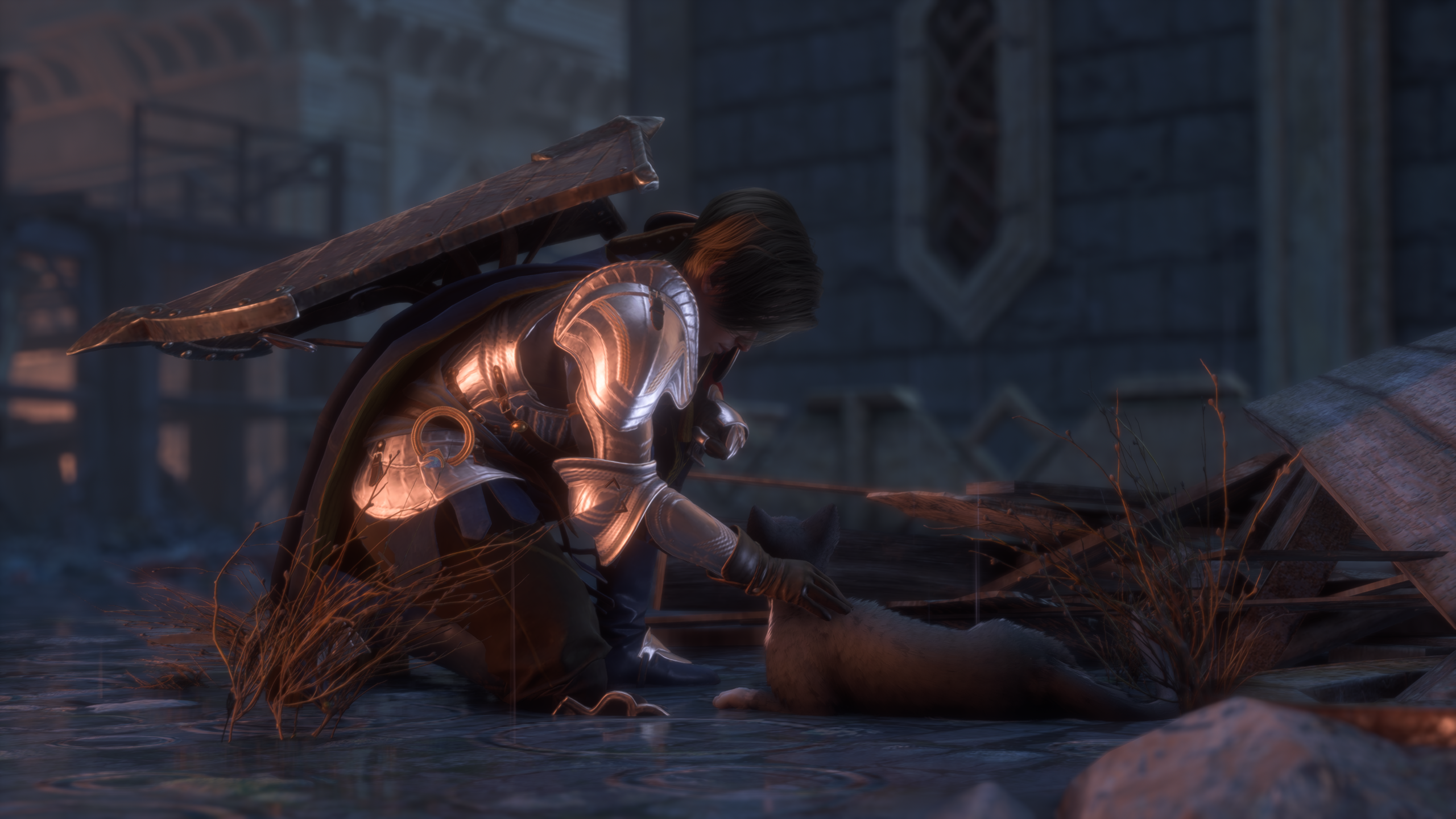
I wrote a big, 5000 word draft talking about specific things I felt fell flat with Veilguard last weekend - I had a good time writing it, I got a lot out of my head, and came to understand a lot better why my opinion on the game was souring over time. The draft itself is nigh-unreadable, but the process was valuable. It got me thinking about the relationship we have to media, and specifically the ways we analyse media that isn't necessarily made for deep analysis.
I know I'm not the only one who loves to watch "trash" and pick it apart for themes, ideas, some kind of thesis statement. I understand this to be something of a core tenet of Tumblr fandom - we're still thinking about this thing we like, and as a result we have worked out a character's whole inner world from a dozen lines of dialogue. I respect that shit. There's a lot of satisfaction in taking a piece of pop media, treating it like any work of literature, and figuring out how it all fits together.
So I played Veilguard, I enjoyed it a great deal, probably the most 7/10 game ever made - extremely competent, fun to play, hard to put down.
So I tried to think about it. Pick it apart. Find themes.
And I struggled?
I'm not saying there's nothing - there are clearly themes about trauma, and fear, and acceptance, there's this pervading sense that there's a millenial work-life balance depersonalisation thing going on. There's a big running theme around feeling the weight of our own decisions.
But to actually play around with, rotate in my mind so to speak... there really just isn't much to work with. It's very thin on the ol' narrative backbone. I think the most obvious lack is that the companions don't really have blindspots. They have A Problem and A Quirk, sometimes related, and not much more. There's no "Sten killed a family" or "Solas is clearly racist" or "" The thing about feeling our decisions, that just isn't reflected in the companions and if you pick a certain type of dialogue option consistently it falls incredibly flat.
I'll look over my partner's shoulder at her feed and there's just screeds and galleries trying to find the seeds of a half-decent romance in the most obvious male love interest, dissecting a 1-second animation and trying to build an entire unspoken character around it, nestled somewhere in his hours of voiced dialogue. Meanwhile I rewatched Buffy Season 2 recently and in Spike's first hour on screen he sets up himself, his beautiful wife, the central conflict, and a thesis statement about Buffy that the viewer can dissect.
I just don't think there's much meat on this bone, to be honest.
I wrote 10x this many words picking it apart, and after doing so I just don't care to edit and post it.
I decided to stash that post and write this one this morning when I had a shower thought - Dragon Age isn't better off with this game's release. I think rushing this out and setting a bunch of answers in stone, while rushing the writing (thus undercutting the foundation of the series - the writers are the core, the characters are the glue) and vindicating every bad instinct their parent company had that got them here. "Oh your single player action game did poorly? Maybe you should try that live-service thing again."
I think they should have taken the core of a game they had here, gutted the writing and setting and plonked the exact same gameplay on some new IP, to let Dragon Age stay the slightly-plodding but endlessly-permutative mine of headcanons and personal preferences it was for the 15 years leading up to it. Bioware get all their "return to form" reviews and folks like me who feel we can't pick it apart get to justify it with "Well at least it's not Dragon Age."
Instead, my review is just "Well, it's not Dragon Age."
My goal here is to discuss Veilguard as a whole without talking much about specific plot-beats or decisions, after completing my own playthrough. I wouldn't mind reading this before playing, and I'm very spoiler-averse.
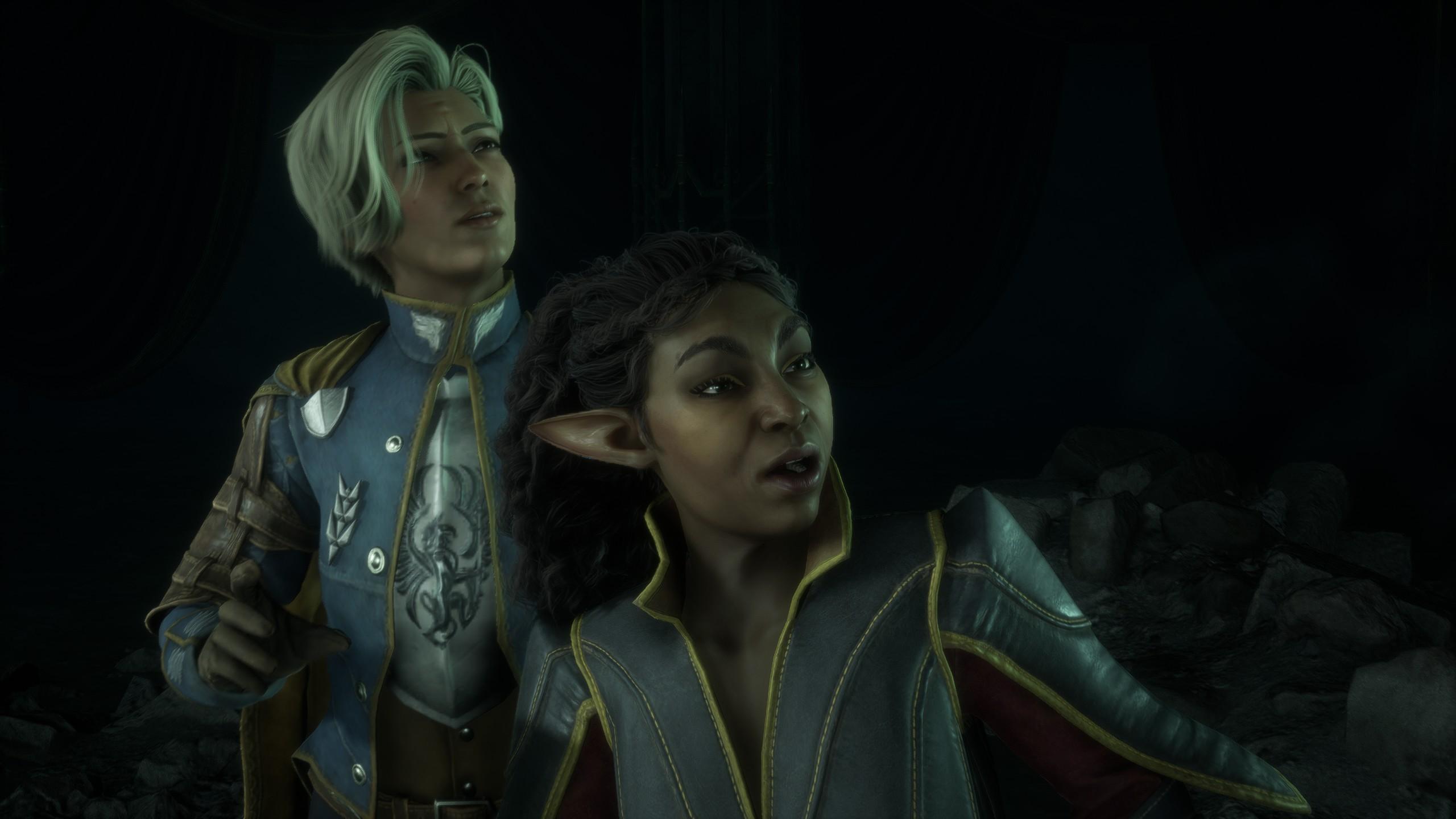
If you want the short version - I recommend it, but not as a Dragon Age fan.
I feel a game like Veilguard encourages the formation of hot takes more than most - it's a big-budget, long-awaited sequel from a company that has... a poor recent track record. They've released 2 new games in the decade since the previous entry and they were, respectively, a let down and a disaster.
Mass Effect: Andromeda had all the hallmarks of an under-resourced over-pressured development, with grand ideas and limited experience behind it. Disregarding a launch rife with meme-able glitches, it still fell extremely short of the expectations of a Mass Effect fan looking to dive back into a world they loved. It was Mass Effect flavoured videogame rather than more Mass Effect. It's lucky they set it in another galaxy centuries removed from the main series, because that means they can ignore it entirely as they make ME4 - and they'll lose nothing of value in the process. The inverse is probably why they did it that way - they didn't need to port your Shepard's decisions into the game because they were irrelevant details in Andromeda, no matter how much they mattered to you.
Anthem was a complete flop of a concept, sharing enough of Mass Effect's aesthetic (suits of armour and double knees, primarily) to invite the comparison while being a clear attempt to claim an early-and-yet-too-late share of the live-service squad-shooter market. I never played it, you never played it, but it sets the scene for our main topic.
Veilguard shares a lot of the same problems as its predecessors - word is they had to broadly restart development after starting down a live-service path, and you can really feel the scars of that process. It feels insubstantial. The character relationships feel extremely of-a-procedure, encounters respawn very quickly so revisiting areas can add up to a massive amount of time, and almost nothing happens off the beaten path - you may think you've left the beaten path, but you're actually just warming it up for when you beat it later. On top of all this, Veilguard relies extremely heavily on the player having done their reading.
I want to harp on a bit about this last part. The main plot contains a handful of revelations that rely heavily on knowledge of Inquisition's DLC which started releasing months after the game's initial release - the only people who played those DLC are die-hard fans doing multiple playthroughs, or late-comers to the series who bought some kind of "Ultimate Edition" or some such. I assume the majority of DA:I players never played these DLC because I never did, and also I have professional experience that would indicate it. This is something of a pattern for Bioware, to the point where it's beyond a theory for me -
- Dragon Age: Origins - Awakening (that's the official punctuation, I checked) sets up the primary conflict in DA2
- Dragon Age 2: Legacy sets up Inquisition entirely.
- Mass Effect didn't have Batarians until they added them in the Bring Down the Sky DLC
- Mass Effect 2: Arrival is a must-play piece of context for Mass Effect 3.
- At this point, I am about 95% certain that Mass Effect 4 is going to build directly on the Leviathan DLC, because that's the only reason I could ever think of to leave it out of the base game. This is me making my prediction explicit.
Anyway, back to Veilguard.
There are a handful of moments throughout where Veilguard absolutely sings as an action-adventure game, namely the big action set-pieces and their associated cutscenes, and the first 1/3 or so of the game when you just get to run around solving puzzles and doing sidequests. Seeing a treasure chest you can't get to, relating it to a nearby puzzle, and mapping out a solution is very satisfying during this period of the game. Each hub area in the game has its own kind of theme, but honestly the first one is by far the best - really well conceived, nicely executed, and doesn't overstay its welcome. Returning to it always feels nice. I wish I could say the same for the last couple, which are at best a slog when you're clearing them up in the mid-late game.
I diverted away from the set-pieces - they fuck. The finale is extremely cool, but throughout the game there are these critical missions that always feel great, getting the crew together and seeing non-party team-members scurrying around the periphery from time to time - it's crack to me. Add that to some truly spectacular visual work, art, and music, and you have a formula for some of the best action-adventure gameplay I've experienced in years.
It's just not Dragon Age, to me. Dragon Age is about characters, stories, and grey morality - poring over contradictory lore and trying to figure out who's got the better of it - there's some massive supernatural threat but the real problem you face is People and their shitty little schemes. "I won't help you save the world until you help me screw over my business partner" is such pathetic bullshit but that's Dragon Age! These people are pathetic! "Oh we'd love to help you prevent our extinction but there's an election on, see" so you're the only sane person in Thedas, crawling through mud and blood and spit and shit, not necessarily doing the right thing but doing the things that need done - at least you think they need done? Surely they need done.
This game lacks that spirit. Our protagonist has it to an extent, but Veilguard doesn't - Veilguard has all the answers, and it's happy to tell you them.
This is a format I'm trying where I get out relatively incomplete thoughts on a topic I may or may not explore more later
Spoilers for 2 30+ year old movies I guess?
In the last few weeks, I've seen Terminator and Terminator 2 in the cinema, two films I haven't seen in the better part of a decade. The last time I saw either was actually also at a cinema, as part of a 6-movie Arnie All-Nighter at the Prince Charles Cinema in Leicester Square. Fun symmetry! Though this duo was were the finale of the 12 hour screening, so I wasn't watching under ideal circumstances back then. That said, these are both films I saw multiple time long before I was supposed to, as a childhood Arnie superfan.
Watching them again recently, with the benefit of an extra 10 years of experience, I had a few thoughts.
- Terminator really holds up. I felt this last time too tbf, and the sleep deprivation may have heightened this. It's a supremely focused film, super intense, and imo entirely un-Hollywood in its presentation. It's weird, the audio design is grating, and it just doesn't let up. A real triumph, I truly wish James Cameron did more work on this scale.
- One of the only Narratively Necessary Sex Scenes in cinematic history, fair play Jim.
- I love how the first half of T2 mirrors the overall arc of T1 - the truck chase with a firey conclusion, the terminator walking out of the flames (bloopy metal this time, ooo), the climactic escape wherein the terminator loses a hand (temporarily? ohhhh), and the escape to the Mexican border - with the kind of questionable-in-the-sequel Sarah Conner voiceovers - before it's ruined and they have to go back and perform an act of domestic terrorism. It's T2 now baby, T1 is over both literally and narratively. Then the film climaxes with a truck chase and the opposite of a fireball.
- The scene where Sarah can't kill Dyson really caught me off guard - it never really clicked for me before that she's stopping because she sees herself as a terminator in that moment, killing a man to get the future she wants. That John comes in and immediately goes to her side, and they're not angry at each other - they're on the same page, they know what they're going to do and trust each other to do it. I feel like this scene is the heart of the whole thing, in a way I never appreciated before - it was always kind of a road-bump in the pacing to me.
- The whole foundry sequence fucking rules, just extremely good cathartic story telling. The audio design is beautifully awful here.
- It's such a tragedy that they made more movies after this. Hell, I'd say that T2 was a massive roll of the dice - the first film leaves the door open somewhat but it was a hard act to follow. They kind of nailed it with T2 but they also nailed the door shut for a sequel imo. T3's hand wavey "nah you just delayed it lol" feels honestly fair given what we know about technologists and the US military, but I still feel let down by the film even if I enjoy it a reasonable amount, and what came after was borderline unwatchable. The story was so sewn up. Speaking of...
- I really liked the kind of misplaced optimism of the ending of T2. The apocolypse has been solved, and that outweighs any bad results, but also John's life is gonna suuuuuuuuck. I honestly can't even recall how they handwave that away in the sequel, gonna assume "false identity" and move on like they probably did.
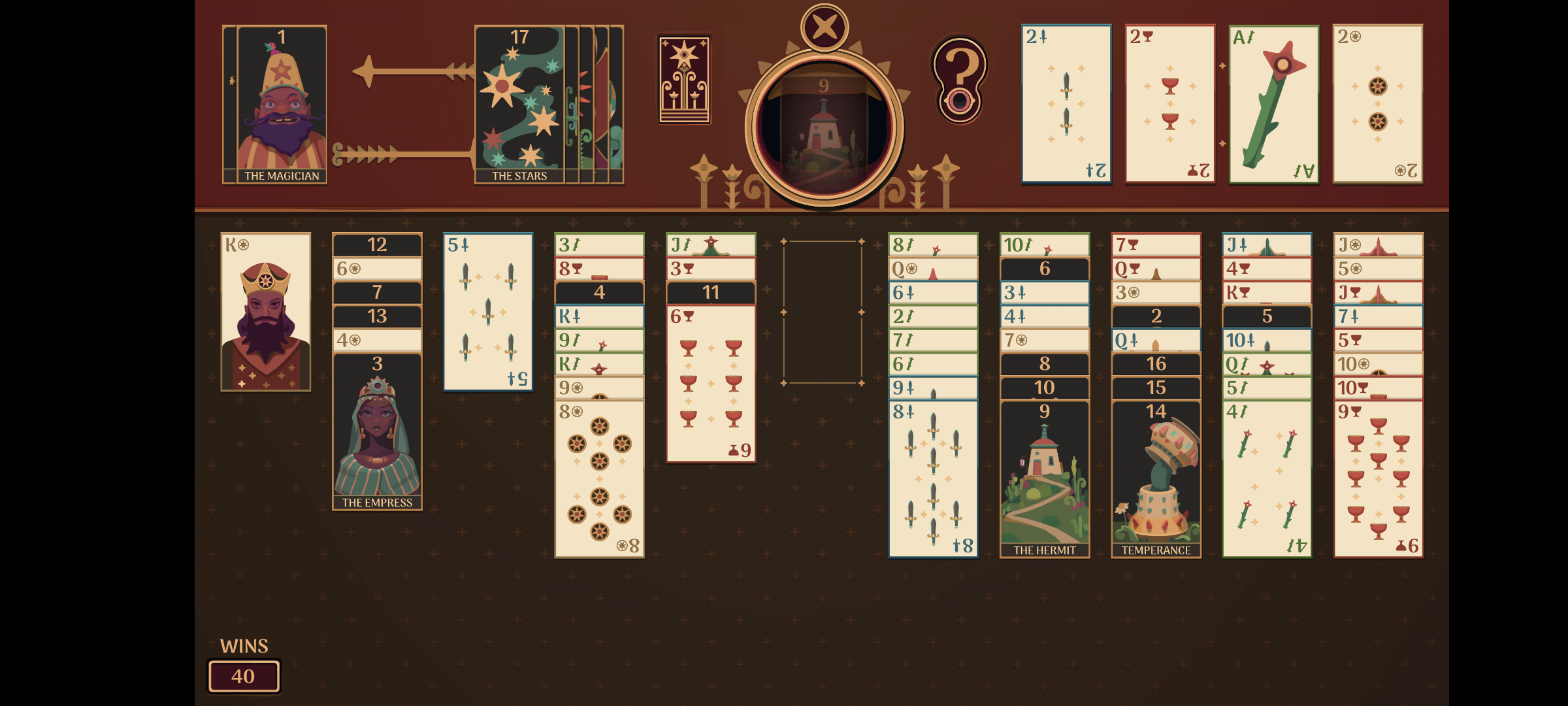 | The final boss
| The final boss
I'm extremely late to the game on this one, but the mobile version of the solitaire collection was released recently and it's really good? I played and beat each of the "minigame" solitaires once, liked a couple enough to play them again (Shenzhen Solitaire in particular really interested me), but then I got to the Fortune's Foundation, the Hard-Mode Tarot Solitaire and, uhhhhh... let's just say it got a hold of me.
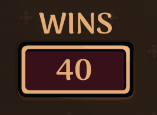
I spent a week or so playing it occasionally, struggling and resetting early a bunch. I got about 8 wins over that time but didn't really understand it.
Then on Thursday it just clicked. 15 wins. 20 wins. 29, 36, 40...
This shit is goooooooood.
I played a bunch of solitaire when I was younger, but it's fair to say I've never thought about a solitaire as much as this one. It just hits the sweet spot of requiring attention but occasionally just being an easy deal. You can still screw up the easy ones, but once you learn to spot the standard pitfalls - overconsolidating, creating knotted piles, throwing away empty spaces - it becomes very natural while remaining a challenge on less perfect deals. I'm typically not a fan of move-1-card solitaire modes, but I'm very glad I didn't hit the settings option for "move stacks" because I think it would have ruined this game for me.
My 39th win had no cards put away for the first 10 minutes or so - this was a shot at my first 3-win-streak, so I agonised over the moves only making a few dozen in this time. Everything was tied up under their partner cards. Eventually, I had a couple of large stacks primed to go, but almost all of the trigger cards (2s, 3s, high and low major arcana) were at the bottom of the piles. For a good 15 further minutes, I painstakingly untied this gordian knot, moving 3-4 cards at a time just to get access to more space, then before I was aware it was happening, the knot fell to pieces as if Alexander the Great had got his sword involved, all the hard parts cleanly severed and it was a formality to finish.
I'm talking like this about a Solitaire game.
Anyway I highly recommend the Zachtronics Solitaire Collection if you enjoy puzzles, or just have ever enjoyed solitaire. It's much better to chill out to than a clicker or match-3, and there's a real sense of satisfaction in learning to spot the core patterns that make them up. Even if the hardest game mode doesn't appeal, there are many other easier (and shorter!) modes.
I finally got round to finishing Forbidden West this weekend, after dropping off of it for 80% through the main story about 8 months ago.
It's a cool game, but one where it feels like they backed themselves into a corner with the scope - they made a really big map and progress through it really falters.
The opening area (maybe 10% of the map) is packed and took days to get through. The 2nd major zone feels really nicely laid out - I happily chugged through this, doing meaningful exploration and learning without feeling like I was letting the END OF THE WORLD main quest stall out.
But that third major bit, far West of the main base, when you're hunting down the last pieces of the puzzle... there's just so much ground to cover and so little reason to take your time because you need to STOP THE END OF THE WORLD. Which is IN PROGRESS BY THE WAY. That last chunk of the game before the true endgame was a real slog.
The endgame itself is very cool though, honestly wish the game had been more focused on those set-pieces than the vast array of crafting, tiered-gear, and minigames. This game needed 10x more "the crew ride off on a mission" cutscenes.
It's a really cool game and one I have a lot of affection for, but the scope and pacing seem entirely off - it was a 50 hour playthrough of a game I really like with systems I enjoy, and it felt significantly longer.









 | Obligatory tierlist
| Obligatory tierlist







 | The final boss
| The final boss